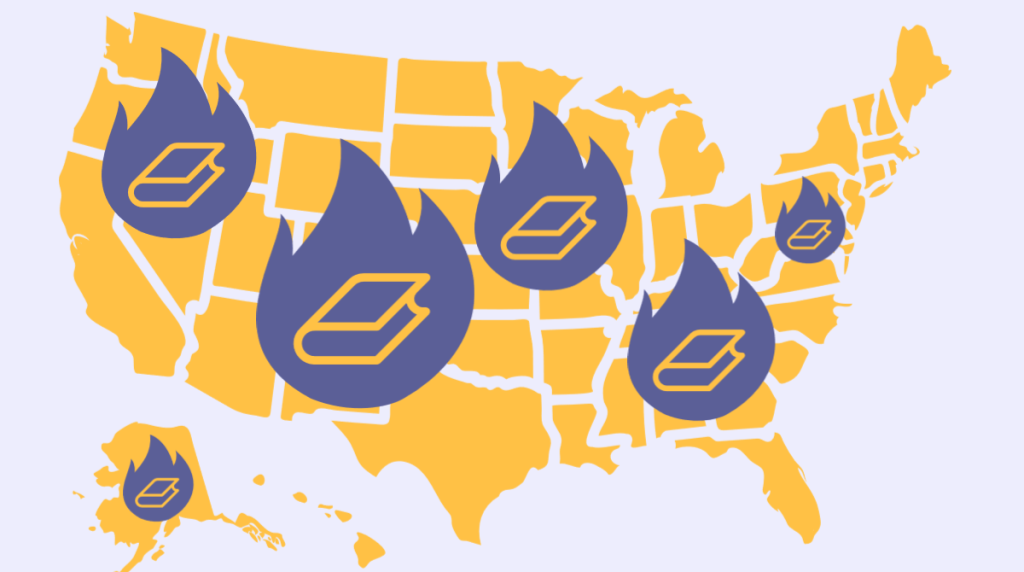“We’re in a period when the rise in book censorship and book challenges ... should be of general concern for everyone.”
American Library Association (ALA) Executive Director Tracie D. Hall was a guest on C-SPAN’s About Books on February 3 to discuss her personal history with libraries and the current issues affecting the library and book worlds. Among the many topics she took on was the recent rise in book bans and challenges throughout the United States. She told host Peter Slen:
“What we have seen is that when there is one person or a group of people deciding what other people have access to read then that is a slippery slope that begins to encumber other human rights.”
When asked why specific books are being challenged, including George by Alex Gino and Stamped: Racism, Antiracism, and You by Ibram X. Kendi and Jason Reynold, Hall said:
“What we find in the books you mentioned as well as others—we are still seeing Of Mice and Men [being challenged]; we’re still seeing The Bluest Eye and To Kill a Mockingbird; books that have already become part of the literary cannon—what we see is that these books are challenged because [they] talk very blatantly about racism or sometimes about sexuality or about all of these experiences. There’s a genre called the Bildungsroman novel—it’s a coming-of-age story, especially for young people. The Catcher in the Rye is a classic one. When we think about [these books] being challenged, it is obviously because there are people who are not understanding that part of adolescent ideation is to ask yourself, ‘Who am I? And what have been the experiences of other people who identify in the way that I am beginning to identify?’ That’s fundamental.”
“ ... [M]any times, we turn to books to experience things we may never experience… But what we want to understand is: What are the kinds of things that are happening in the world and what is the array of responses? I think that is really fundamental to adolescent ideation. I’ve spent a lot of my time in the adolescent development space, and what I do know, is that it is so important to provide access to a free range of reading to young people to help them actually problem solve before they encounter a problem in real life.”
Watch the full interview with ALA Executive Director Tracie D. Hall here.
Take action
Alarmed by the escalating attempts to censor books? Here are four steps you can take now to protect the freedom to read.
1. Follow news and social media in your community and state to keep apprised of organizations working to censor library or school materials.
2. Show up for library colleagues at school or library board meetings and speak as a library advocate and community stakeholder who supports a parent's right to restrict reading materials for their own child but not for all readers.
3. Help provide a safety net for library professionals as they work to navigate the intellectual freedom needs of their communities by giving to the LeRoy C. Merritt Humanitarian Fund.
4. Educate friends, neighbors, and family members about censorship and how it harms communities. Share information from Banned Books Week 2021.
ALA offers direct assistance as well as an array of resources to assist library workers and library advocates in responding to and supporting others facing such challenges. If you’re experiencing a book challenge, please report it to ALA’s Office for Intellectual Freedom and let them know if you need assistance.



